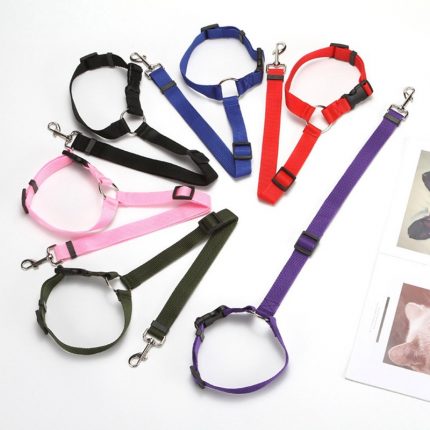Puppies are undeniably adorable and bring immense joy to our lives. However, as a new puppy owner, you may find yourself puzzled and concerned when your furry friend starts crying. It is essential to understand that crying is a natural form of communication for puppies, and it can indicate various needs and emotions. In this article, we will explore the reasons behind Why Does My Puppy Cry and what you can do to address their needs.
One of the primary reasons puppies cry is to express their basic needs. Just like human infants, puppies cry when they are hungry, thirsty, or need to relieve themselves. They may also cry if they are feeling cold or uncomfortable. As responsible pet owners, it is crucial to ensure that your puppy has access to fresh water, a comfortable sleeping area, and a balanced diet. By meeting their basic needs promptly, you can help alleviate their crying.
 Understanding the Reasons Behind Why Does My Puppy Cry
Understanding the Reasons Behind Why Does My Puppy Cry
Here are some of the reasons of Why Does My Puppy Cry:
Separation Anxiety: A Common Cause
One of the most common reasons Why Does My Puppy Cry is separation anxiety. When puppies are separated from their human family members or littermates, they can feel anxious and distressed. This anxiety often leads to excessive crying, whining, and even destructive behavior. To help alleviate separation anxiety, it is important to gradually introduce your puppy to alone time. Start with short periods of separation and gradually increase the duration. Providing your puppy with comforting toys or blankets that have familiar scents can also help ease their anxiety.
Basic Needs: Hunger, Thirst, and Comfort
Puppies, just like human infants, cry to express their basic needs. They may cry when they are hungry, thirsty, or need to relieve themselves. It is crucial to ensure that your puppy has access to fresh water and a balanced diet. Feeding them at regular intervals and providing appropriate portion sizes can help prevent hunger-related crying. Additionally, puppies may cry if they are feeling cold or uncomfortable. Make sure your puppy has a warm and cozy sleeping area, and consider using blankets or a heating pad during colder months.
Teething: A Painful Process
Teething is a natural process for puppies, but it can be a source of discomfort and pain. As their baby teeth fall out and adult teeth come in, puppies may experience sore gums, leading to increased crying and irritability. Providing appropriate teething toys, such as rubber chew toys or frozen washcloths, can help alleviate their discomfort. It is important to regularly check your puppy’s mouth for any signs of dental issues, such as swollen gums or broken teeth. If you notice any concerns, consult your veterinarian for proper guidance.
Loneliness and Boredom: The Need for Stimulation
Puppies are energetic and curious creatures that require mental and physical stimulation. When left alone for extended periods or without proper enrichment, they may resort to crying to seek attention or express their frustration. To prevent feelings of loneliness and boredom, engage your puppy in regular playtime and provide interactive toys that challenge their minds. Consider taking your puppy to puppy socialization classes, where they can interact with other dogs and learn valuable social skills. This not only helps alleviate crying but also promotes their overall well-being.
Practical Recommendations to Address Why Does My Puppy Cry
1. Establish a Routine
Creating a consistent daily routine for your puppy can help alleviate their anxiety and reduce crying. Set specific times for meals, walks, playtime, and rest. This structured routine will provide your puppy with a sense of security and predictability, helping them feel more at ease.
2. Gradual Alone Time
To help your puppy overcome separation anxiety, gradually introduce alone time. Start with short periods and gradually increase the duration as your puppy becomes more comfortable. Provide them with a safe and comfortable space, such as a crate or designated area, where they can retreat to when alone.
3. Enrichment Toys and Activities
To combat boredom and loneliness, provide your puppy with a variety of interactive toys and activities. Puzzle toys that dispense treats, chew toys, and interactive games can keep their minds engaged and prevent excessive crying. Rotate toys regularly to keep them interesting and stimulating.
4. Socialization Opportunities
Socialization is crucial for a puppy’s development and can help reduce anxiety and crying. Enroll your puppy in puppy socialization classes or arrange playdates with other well-behaved dogs. This will not only provide them with social interaction but also help them learn appropriate behaviors and build confidence.
5. Positive Reinforcement
When your puppy is calm and quiet, reward them with praise, treats, or a favorite toy. Positive reinforcement helps reinforce desired behaviors and can teach your puppy that being calm leads to positive outcomes. Avoid scolding or punishment, as this can increase anxiety and worsen crying.
6. Consult with a Veterinarian
If your puppy’s crying persists or is accompanied by other concerning symptoms, it is important to consult with a veterinarian. They can rule out any underlying medical conditions that may be causing the excessive crying and provide appropriate guidance and treatment options.
 7. Patience and Consistency
7. Patience and Consistency
Addressing your puppy’s crying requires patience and consistency. It takes time for puppies to adjust and learn, so remain consistent with your approach and provide reassurance. Remember, your puppy relies on you for their well-being, and with time, love, and understanding, their crying will likely decrease.
Our featured products:
Why Does My Puppy Cry – Conclusion
Crying is a natural form of communication for puppies. By understanding the reasons behind their crying, we can better address their needs and ensure their well-being. Separation anxiety, basic needs, teething, and loneliness are common factors that contribute to puppy crying. Providing a loving and nurturing environment, gradually introducing alone time, meeting their basic needs promptly, managing teething discomfort, and providing mental and physical stimulation can help reduce crying episodes. Remember, with patience, understanding, and proper care, you can help your puppy grow into a happy and content companion.















 Understanding the Reasons Behind Why Does My Puppy Cry
Understanding the Reasons Behind Why Does My Puppy Cry 7. Patience and Consistency
7. Patience and Consistency